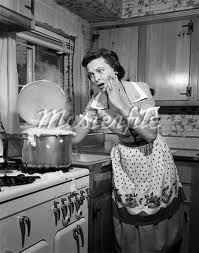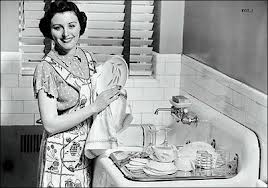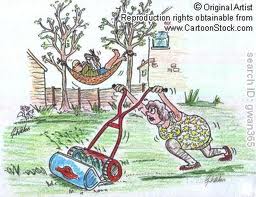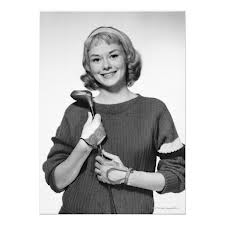What would a city boy know about farming?

When my proposal to write a number of blogs on the subject was accepted by the Irish Executives Linkedin group, I thought that applying some MBA type observations on the business of farming might produce some interesting ideas and in order not to be too offensive or look completely stupid, the blogs would have a certain amount of tongue in cheek attitude. That was until I sat in front of an empty page with suddenly frozen fingers poised expectantly over an unforgiving keyboard.
Then I thought, there are two issues here; can I prove I am a city boy and what do I know about farming?
On the city boy issue, I can say that, other than a two week trip to Auchengillan in Scotland with the Scouts when I was eleven, a Sunday trip in the family car to Newry sometime in the early sixties, (that trip is an interesting story all of its own) and a one week soccer tournament trip to White Hart Lane, London circa 1967, I was never outside County Dublin until I was eighteen years of age and we had no country cousins to visit us either.
I was born in The Rotunda hospital, brought home to number 12 Rutland place at the end of the North Circular Road facing O’Connell’s School, a school I attended until I was twelve. My mother was born in Mountjoy Square as was my Grandmother, and Great Grandmother. My maternal Grandfather was born in Skerries and spent his working life as a baker in Kennedy’s bakery on the North Circular Road. My father arrived in Dublin from Toronto Canada when he was seven and lived in various places around the city, finally ending up in Grantham Street off Camden Street. Most of my paternal granduncles were Dublin Metropolitan Policemen. We moved to Santry in 1955 where I lived until I moved to Walkinstown in 1977 and from there wound my way to my current abode in Rathfarham Village.
I have one sister who now lives in Killenard in Co Laoise, other than that and some distant cousins we discovered while building the family tree, we still have no direct family connections outside of Dublin
So, I’m a City boy, what do I know about farming? From a commercial farming point of view very little, I certainly would not be capable of taking over a farm and running it without some serious help. (a subject for a future blog) Then I thought, wait a minute, I may not have been on a farm but I certainly had some interaction with animals and food as I grew up in the city.
Like most streets in inner city Dublin in the fifties, there was a piggery. In our case it was four doors from my grandmother’s house in Rutland Place and as kids we used to bring the buckets of kitchen waste to this house at the end of the day. If the owner was in a good mood we got a penny if not we got a Marietta biscuit. (this may be something that was controlled by adults without us knowing) There was no food waste in Rutland place in those days, if the humans didn’t eat it, the pigs got it. I don’t have any memories of what happened to the pigs when they were fattened. It was not in our mindset to make the connection with the pork butcher around the corner on Summerhill.
My next interaction with the food chain was when travelling to O’Connell’s School from Santry. This meant getting off the number 16 bus in Dorset Street and walking (running) down the “Norrier” to O’Connell’s. On some Wednesdays and Fridays the North Circular Road became a cattle drive as the cattle that had been sold in the Stonybatter cattle market were run along it to Dublin port for export to England. We were on a “western” cattle drive, waving our school rulers like six guns and whopping it up like the cowboys we saw in Drumcondra Grand picture house. Sometimes a stray cow would panic and run up one of the side streets, followed by a number of its pals and all hell would break loose. The condition of people’s front doors was not pleasant to look at or smell. (no front gardens in inner city houses) There was many a drover’s ash plant swung or thrown at a running schoolboy
I got my first chance at animal husbandry (well chickens anyway) when one of our neighbours in Santry, who were from Scotland, went home on holidays. Our neighbour was a wonderful confectioner (she still is) and kept a chicken coop for the production of fresh eggs. ( I think twenty five or so) I got to look after them for two weeks each year while they were away. I had to measure out the food, I can still smell it while I write this, clean and fill the water bowls, they were forever stepping in them with not very clean feet and knocking them over, clean out the hen house and make certain they were all inside at night. I got paid Ten Shillings a week and all the eggs as payment, a not inconsiderable amount for a Twelve year old. This was also my first introduction to commerce as I sold any of the eggs my mother didn’t use. See, there is a business story to this.
I had an introduction to market gardening and retailing in Skerries, where we spent a lot of time during our Summer holidays (If we didn’t go to Bray). There was a farm food shop in the Main Street on the corner of Balbriggan Street, facing the cottage into which my grandfather had been born. The shop was owned by a cousin of my Grandaunt , who still lived in my grandfathers cottage. We got to help out behind the counter, measuring out sugar and floor, weighting out loose potatoes, watching her cut and package the butter and counting out the change for the customers. This memory may be silver lined with a child’s view of the world as I can’t imagine Miss Moles letting kids mess around with that kind of thing. I also got to watch her brother Mike, house and manage the dray horse and cart he used to transport vegetables to the Dublin Markets. He farmed a number of acres at the top end of Skerries, growing potatoes, cabbage, turnips etc.
My next interaction with the food chain was coming up to Christmastime at the house of one of my friends. The family was from Mayo and the woman of the house kept Turkeys each year. These were bought as poults to order from a farm in Mayo, fattened and killed in their back garden. This was a task that my friend and his brother took great pleasure in carrying out, especially the bit where they ran around with no heads. Another City boy and I stood by and watched, refusing to get involved in the killing but helping out with the plucking and learning that you can’t do this when they are warm. I wasn’t squeamish about this, I just wasn’t certain I could do it right and didn’t want to make a bigger mess than there already was. In fact, when younger, I used to take great pleasure chasing my sisters around the house with the Turkey’s head and feet, and the innards, if my mother would let me have them.
The interaction with the food chain that best demonstrated my City Boy status happened in Murrisk in Co. Mayo when I was eighteen and “down the country” for the first time. My friend whose family was from Mayo had suggested that we should travel there for our holidays that year, so three of us put haversacks on our backs and hit the N4/N5 on the thumb. We got to stay in the farmhouse of one of my friends granduncles and of course the norm was for milk to be produced at the table directly from the cow, which was milked in the field beside the house. The strong taste of it reminded me of the small bottle of milk we were given in primary school during lunchtime in the late fifties. Sometimes the crates of milk would have been left out in the school yard in the sun and God knows how old they were before being delivered to the school. Suffice to say that warm milk was not my favourite beverage. I of course had never seen milk poured from anything except a glass bottle that had been delivered to our door by the milkman.
One of the days we made the six mile trip to Westport and I decided that I would buy myself some milk for taking back to the farm house. On entering the shop I asked the girl behind the counter if she had any milk and could I have real milk from a bottle please, not cow’s milk. I knew what I meant but of course there was loud laughter all around and I was royally slagged for months afterwards.
A more controversial interaction with a farm happened during the eighties. A work colleague of my wife had married a medium sized farmer from the midlands and we were invited to spend the weekend with our three children on the farm. I was in business development mode with our transport company so six days were the norm and I didn’t get to the farm until late Saturday evening. The days had had been spent turning the hay in a field, in preparation for stacking in haystacks for final drying before been taken in for the winter. That’s my understanding of the process. When I got there, the farmer, his brother and a couple of labourers , who had been turning the hay, were discussing the weather. It appeared that a major rain storm was predicted for the next few days and if that happened, the hay would basically be ruined. This was about nine O’clock and the guys said it was too late to start stacking because it would get dark before they finished. I suggested that we bring all the cars and tractors to the field and use the headlights to provide visibility, build the haystacks, even if it took all night and then adjourn for beers etc. This was met shrugging of shoulders, raised eyebrows and a “what would you know about it” attitude.
We all adjourned to the pub, it rained all the next day, and the next. The hay was lost and it was blamed on the weather. I subsequently discovered that the farmer wasn’t that pushed because he knew he would be entitled to compensation from the EEC (EU). We then heard over the next few months that a huge number of farmers, but not all farmers, received compensation for ruined hayfields because of the weather. I remember wondering “If they had tried harder, would they have been able to save the hay” and how come other farmers managed to save theirs? This is definitely one of those “City Boy” views of that situation as, in my business, we would never have given up that easily.
When thinking about subjects for my blog posts the above thoughts were running through my head so I decided to use them as the first article and a lead into a more serious look at the relationship between the city consumers and the farmers that produce our food. I want to trace the milk, meat and vegetables that are currently residing in my fridge on their journey from their place of origin. I plan to look at the use of our farm land, I see a lot of empty fields as I travel around the country, the difference between vocational and commercial farming, if there is any, and look to see if there is anything useful a city business attitude can bring to the farming table
I believe farming presents Ireland with one of the biggest opportunities to address the issue of the current lack of indigenous business growth. The trick is to marry the production of fresh food with the marketing and distribution industries by sharing ideas across the different disciplines.








